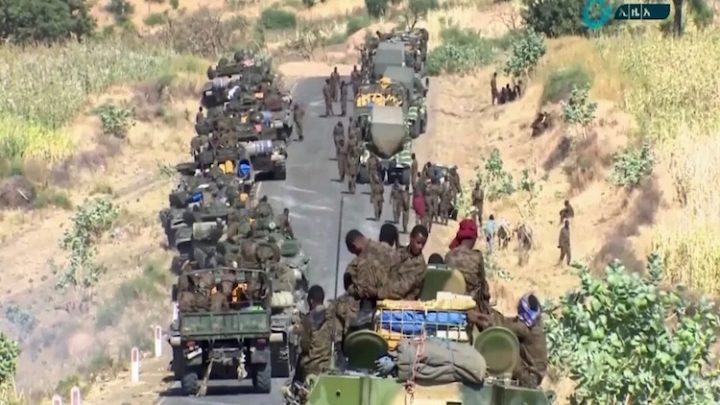The Norwegian Nobel Committee awarded the 2019 Nobel Peace Prize to Ethiopian Prime Minister Abiy Ahmed Ali “for his efforts to achieve peace and international cooperation, and in particular for his decisive initiative to resolve the border conflict with neighbouring Eritrea.” The prize was also meant to recognise all the stakeholders working for peace and reconciliation in Ethiopia and in the East and Northeast African regions.
The Prize is awarded to those who have “done the most or the best work for fraternity between nations, for the abolition or reduction of standing armies and for the holding and promotion of peace congresses”.
Since November 4, 2020 – one year after receiving the coveted award – Abiy has been embroiled in a bloody war in the Northern region of Ethiopia involving Eritrea and the Federal Ethiopian troops in a military conflict that risks spilling over to Somalia, Sudan, South Sudan and Kenya.
The President of the African Union, Cyril Ramaphosa, has appointed three special envoys to mediate in the conflict. “Unfortunately, the envoys have not been able to meet with the parties involved and no mediation has happened,” states the African Women Appeal for a Horn of Africa Initiative.
African women are calling on the 55-nation African Union, the seven-country Intergovernmental Authority on Development (IGAD) and the international community to set up a female peacekeeping force to promote peace in the Horn of Africa.
While the African Union headquartered in Addis Ababa has committed itself to “silencing the guns” initiative which kicked off in 2020, IGAD has been working on a development strategy for the Horn of Africa, a strategy that is being undercut by armed hostilities.
The appeal issued on December 14 is signed, among others by Julia Cassell, the former Minister of Gender from Liberia. It urges African leaders to create the conditions for peace on the ground.
Cassell is joined by nearly 110 women — including entrepreneurs, teachers, humanitarian aid workers, scholars, civil servants, mothers and community workers, and health workers and from 19 countries across the African continent: Ethiopia, Eritrea, Sudan, South Sudan, Somalia, Tunisia, Morocco, Benin, Niger, Ghana, Nigeria, DR Congo, Uganda, Kenya, Rwanda, Cameroon, Tanzania, Zimbabwe and South Africa.
“In Liberia, we know the pain women suffer from military conflict. Our sons, husbands and fathers were forced to join the fighting. Not knowing whether they are dead or alive, there is obviously only one way forward: fighting must stop,” says Cassell. “Let us recall that a female peace-keeping force in Liberia helped end the fighting, and for women and their families to return to a peaceful life. We found that female peacekeepers on the ground were very effective.”
The armed conflict is causing untold suffering. At least one of the six million people in the Horn region have been internally displaced and are still without food or support, notes the appeal. Four camps with 100,000 refugees have been targeted by the fighting and refugees are desperately trying to find a safe place. 50,000 refugees have reached Sudan, many of whom are young children without their families. Numerous other refugees are not able to reach Sudan safely.
Whilst leaders in the region have tried to reassure African leaders that the situation is under control, the women in the region are losing hope as their loved ones are not coming home, communication is not restored, and mobilisation for military purposes is ongoing. A humanitarian corridor has not been established and 2 million people have no access to food.
The African Women’s appeal urges African leaders and the international community to act to protect civilians, refugees and Internally Displaced People.
“A female peacekeeping mission for the Horn of Africa will ensure that a humanitarian corridor is established, food gets in and peace can be restored so that mediation can begin. Women need to come forward as role models. Hate-speech and ethnic profiling needs to end. It is time for women to take the lead,” stresses the appeal.
Female peacekeepers from Ghana, Nigeria, South Africa, Burundi, Niger and other African countries have proved to be role models, it adds and recalls that in 2016, the all-female Formed Police Unit from India was commended for their excellent contributions to the success of the mission in Liberia as it was completed. [IDN-InDepthNews – 15 December 2020]
Photo: Ethiopian federal government’s “final offensive” against Tigray regional forces. Credit: Ethiopian News Agency






